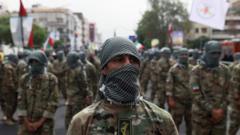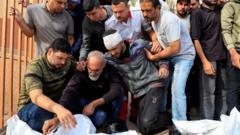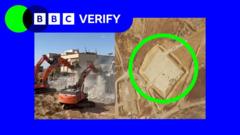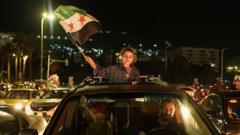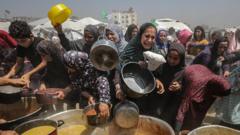In an alarming new development, the Rapid Support Forces have adopted drone warfare tactics against strategic targets, threatening the stability of Port Sudan.
**Sudan's Civil War Escalates as Drone Warfare Takes Center Stage**
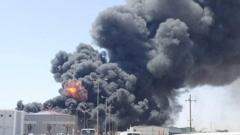
**Sudan's Civil War Escalates as Drone Warfare Takes Center Stage**
The recent surge in drone attacks marks a significant shift in Sudan's protracted civil war, leading to a humanitarian crisis.
The ongoing civil war in Sudan has taken a dramatic turn as the Rapid Support Forces (RSF) intensify their drone warfare, posing new challenges for the Sudanese Armed Forces (SAF) and exacerbating an already dire humanitarian situation. Following their expulsion from the capital, Khartoum, the RSF has launched a series of drone attacks on Port Sudan, a city previously considered a bastion of safety amid the conflict. The strikes, which have crippled critical infrastructure, sparked power outages, and caused water shortages, are described as part of the RSF's "shock and awe" strategy to demonstrate their continued capability despite territorial losses.
The military engagement from the RSF highlights a marked evolution in their tactics, emphasizing remote offensives that could redefine the conflict. Analysts suggest that these drone assaults signal a shift in focus away from traditional ground engagements. Kholood Khair, a Sudanese political analyst, asserts that the RSF's actions underscore their intent to disrupt the governing capabilities of the SAF. While both factions have been accused of war crimes—allegations the RSF has vehemently denied—the recent escalation has raised the stakes, endangering millions caught in the midst of the unrest.
The emergence of advanced drone technology in the Sudanese theater has not only increased the attacking efficiency of the RSF but has also highlighted the involvement of external actors in the conflict. Accusations have surfaced against nations such as the United Arab Emirates (UAE) for allegedly supplying the RSF with drones, while Iran has been implicated in supporting the SAF. The evolving dynamics of drone warfare could reshape the power balance in Sudan and the broader region, raising concerns over the prolonged duration of the conflict absent robust international intervention.
As ongoing air assaults continue, the humanitarian implications remain grave, with aid operations jeopardized and civilian lives increasingly at risk. Experts warn that without serious diplomatic efforts, this horrifying trend in warfare could persist for years, leaving a trail of devastation in its wake.
The military engagement from the RSF highlights a marked evolution in their tactics, emphasizing remote offensives that could redefine the conflict. Analysts suggest that these drone assaults signal a shift in focus away from traditional ground engagements. Kholood Khair, a Sudanese political analyst, asserts that the RSF's actions underscore their intent to disrupt the governing capabilities of the SAF. While both factions have been accused of war crimes—allegations the RSF has vehemently denied—the recent escalation has raised the stakes, endangering millions caught in the midst of the unrest.
The emergence of advanced drone technology in the Sudanese theater has not only increased the attacking efficiency of the RSF but has also highlighted the involvement of external actors in the conflict. Accusations have surfaced against nations such as the United Arab Emirates (UAE) for allegedly supplying the RSF with drones, while Iran has been implicated in supporting the SAF. The evolving dynamics of drone warfare could reshape the power balance in Sudan and the broader region, raising concerns over the prolonged duration of the conflict absent robust international intervention.
As ongoing air assaults continue, the humanitarian implications remain grave, with aid operations jeopardized and civilian lives increasingly at risk. Experts warn that without serious diplomatic efforts, this horrifying trend in warfare could persist for years, leaving a trail of devastation in its wake.


